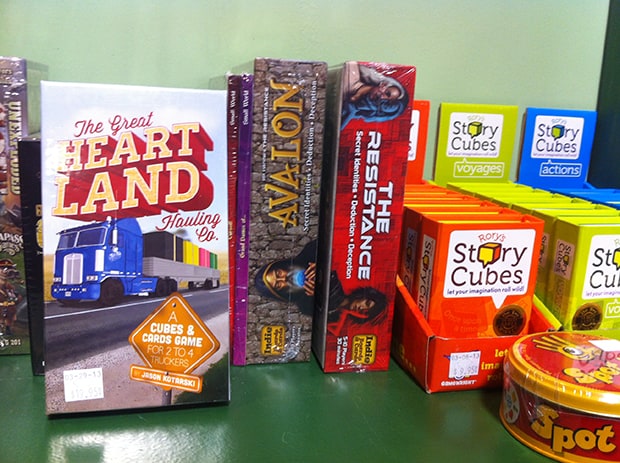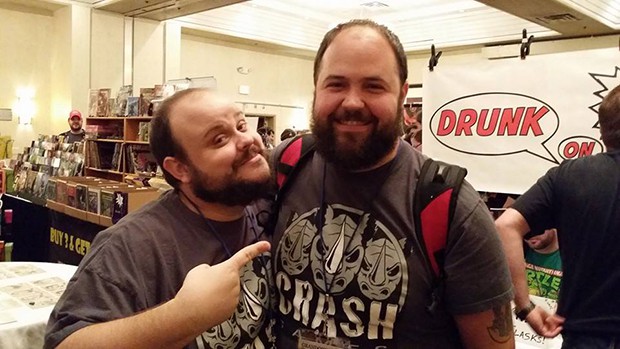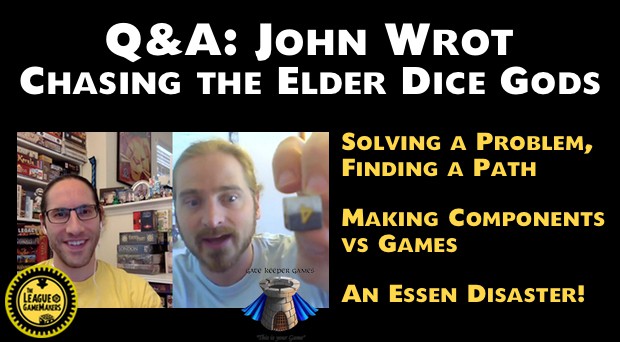
The following is a guest post from Jason Kotarski – a designer with games published by Dice Hate Me Games, Crash Games, and White Goblin Games. He is the host of the 20 Minutes of Filler Podcast and runs Green Couch Games, a publishing company specializing in “great little games that make great big connections.”
WHEN YOU TRY TO SELL A GAME TO A PUBLISHER, YOU AREN’T JUST SELLING A GAME. YOU ARE ALSO SELLING YOURSELF.
Maybe you’ve already heard that tip. But if you haven’t it’s a good one so listen up!
Publishers have to think about this kind of thing. A game might be great but if the person who designed it isn’t easy to work with or is emotionally unstable, it might not be worth picking up their amazingly, awesome, ever-so-unique masterpiece.
Considering how much time and energy will be spent developing a game for publication, usually with the designer playing some role in that process, the crazies might get passed over in favor of another game from a less troublesome designer. Afterall, everyone seems to have a game in the works these days.
As an independent publisher in the tabletop gaming space, I’d much rather work with calm, collected people that I feel like I can be friends with than needy, draining, smelly geniuses. I want to spend time making something I love with people I actually like being around.

LOOK! JASON AND PATRICK FROM CRASH GAMES LOOK LIKE THEY MIGHT BE FRIENDS!
Here are some questions to help you gauge which category you fall into and give you a sense of where you might need get to work to be a healthier, more whole game designer:
1. ARE YOU A GOOD COMMUNICATOR?
You don’t have to be an extrovert but you have to be able to carry on a conversation. And you should remember that conversation goes two ways, with both people taking turns responding with one another. It’s not all about you. Hanging out with self-centered narcissists is a bummer. So, don’t be one. You should probably be able to piece together a solid e-mail, too. Preferably one that uses mostly correct punctuation. Notice the emphasis on “mostly”. I may have made some mistakes here, but it probably didn’t take you too long to figure out what I’m saying. Hopefully.
2. DO YOU KNOW THE DIFFERENCE BETWEEN CONFIDENCE AND COCKINESS?
Don’t get cocky, kid. You might have a sweet game and it truly might be unique and go on to a second or third print run (which I’d consider a smashing success with the sheer number of new games coming out all the time, btw) but if you are arrogant folks can taste that in the air. People don’t want to be around other people who make them feel small. Know yourself, know your game but understand that the other people around you have something to contribute, too. Confidence is about believing in yourself and in your product without getting too big for your britches.
Hint: A little gratitude goes a long ways towards keeping your feet on the ground. It might even be the dividing line between cocky and confident. Confident people believe in themselves but realize they can’t do this on their own. People are important. They are the ones who play and share your ideas. Sometimes they are the ones that actually help bring your ideas to the masses. Don’t be too awesome to recognize that!
3. HOW DO YOU HANDLE FEEDBACK/CRITICISM?
Consider feedback a gift. If people are taking the time to look at your work and put together thoughts about it to share with others that is a great opportunity to grow! Sometimes the feedback will take you and/or your game to the next level. Sometimes it will hurt your feelings. But think of feedback as a reminder that you are a part of something that is special. You make games! And people have played them! That’s a win. Don’t get defensive. Take the good stuff and let go of the bad (after you have shown some gratitude for their time, of course).
Also, it’s important to know that it’s a very rare occurrence that between licensing a game to a publisher and it’s actual release that a game stays exactly the same. Learn to be flexible and fight for what is important. Listen to others. Sometimes their experience might just help make you a better designer. Maybe even a better person.
—
What does it look like to become the kind of person that doesn’t have to sell themselves? It could just be a better version of you and that’s enough to get the job done. When you are that kind of person you’ll get to focus on the fun stuff; making more games and making more friends!









